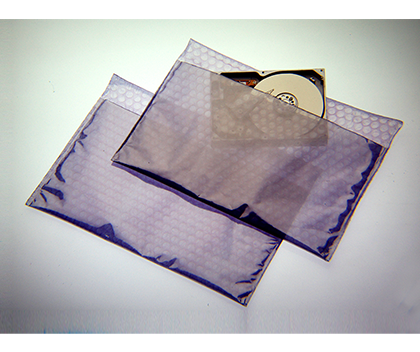ESD Anti-Static Air Bubble Bag: Ultimate Protection for Sensitive Electronics
- Aug 27, 2025
- 3 min read

In today’s electronics manufacturing and cleanroom environments, protecting sensitive components from static electricity and physical damage is a top priority. One small electrostatic discharge (ESD) or minor impact can lead to costly failures, production downtime, and damaged products. That’s where the ESD Anti-Static Air Bubble Bag becomes an essential solution — offering both static protection and physical cushioning in a single package.
What Is an ESD Anti-Static Air Bubble Bag?
An ESD Anti-Static Air Bubble Bag is a specialized packaging solution designed to safely store, ship, and handle static-sensitive electronic components.
These bags combine anti-static materials with bubble cushioning to provide:
Static protection by neutralizing electrostatic charges
Physical shock absorption during handling and transportation
Contamination-free storage for delicate electronic assemblies
Commonly used in:
Printed Circuit Board (PCB) packaging
Semiconductor manufacturing
Hard disk drive protection
LCD, LED, and display panel shipping
Cleanroom assembly and storage operations
Why Are ESD Anti-Static Air Bubble Bags Important?
Electrostatic discharge can damage components even before they’re installed, making reliable packaging critical.
Using ordinary bubble wraps or plastic bags poses risks like:
Static buildup that damages sensitive microchips and circuits
Particle shedding leading to contamination in cleanrooms
Inadequate cushioning causing physical breakage during transit
With ESD Anti-Static Air Bubble Bags, manufacturers can:
Safeguard components from ESD damage
Protect products from scratches, dents, and impacts
Maintain compliance with industry safety standards
Types of ESD Anti-Static Air Bubble Bags
Different applications require different specifications. The most commonly used types include:
1. Open-Top ESD Air Bubble Bags
Ideal for storage in ESD-safe cabinets
Quick insertion and removal of components
2. Resealable ESD Bubble Bags
Equipped with zip locks for reusable applications
Best for frequent handling of parts
3. Pink Anti-Static Bubble Bags
Visibly distinguishable and commonly used in electronics packaging
Cost-effective solution for static protection
4. Moisture-Barrier ESD Bubble Bags
Protects components from humidity and static electricity
Ideal for sensitive semiconductor devices
Key Benefits of ESD Anti-Static Air Bubble Bags
✅ Dual Protection – Guards against both static discharge and physical damage
✅ Compliance Ready – Meets international ESD safety standards
✅ Durable & Lightweight – Ensures cost-effective shipping and storage
✅ Reusable Options – Reduces packaging waste and operational costs
✅ Versatile Applications – Suitable for semiconductors, PCBs, displays, and more
How to Choose the Right ESD Air Bubble Bag
Before selecting the right bag, consider:
Component Sensitivity – Match bag type to the level of ESD protection required
Storage vs. Shipping – Use thicker bubble bags for transportation
Moisture Concerns – Select moisture-barrier bubble bags for humidity-prone regions
Size & Fit – Ensure proper sizing for a secure, snug fit
Best Practices for Using ESD Air Bubble Bags
Always handle components using ESD-safe gloves
Store bags in ESD-protected workstations
Keep bags sealed to prevent contamination
Regularly check bags for wear or tears
Final Thoughts
The ESD Anti-Static Air Bubble Bag is more than just packaging — it’s an investment in product safety, quality assurance, and operational efficiency. Whether you’re shipping delicate PCBs, storing semiconductors, or safeguarding display panels, these bags ensure your components remain safe, clean, and static-free at every stage.
FAQs
Q1: Can I use regular bubble wraps instead of ESD air bubble bags?
No, regular bubble wraps generate static and can damage sensitive components.
Q2: Are ESD air bubble bags reusable?
Yes, resealable and zip-lock models are designed for multiple uses without compromising protection.
Q3: Do these bags work without ESD flooring and workstations?
They provide standalone protection but are most effective when used with other ESD-safe infrastructure.

%20(65).png)



Comments